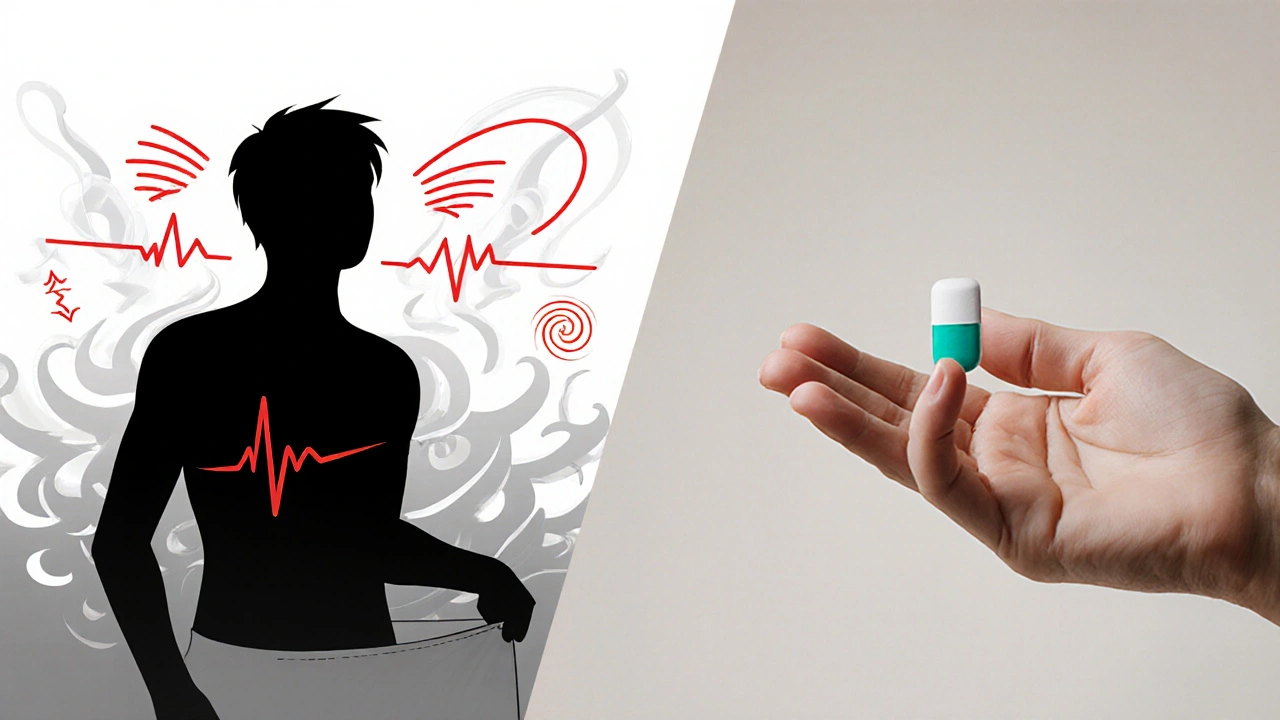Understanding Hyperthyroidism: Causes, Symptoms & Treatment
When dealing with hyperthyroidism, an overactive thyroid that releases excess thyroid hormones into the bloodstream. Also known as thyrotoxicosis, it speeds up metabolism, can cause weight loss, rapid heartbeat and nervousness. Recognizing the condition early helps prevent complications like heart rhythm problems or bone loss.
How the Thyroid Gland Triggers the Hormone Surge
The thyroid gland, a butterfly‑shaped organ at the base of the neck, produces two main hormones – triiodothyronine (T3) and thyroxine (T4). These hormones regulate almost every cell’s energy use. In hyperthyroidism the gland cranks up production, flooding the body with T3 and T4. This surge disrupts normal metabolic balance and fuels many of the classic symptoms like heat intolerance, tremors and irritability.
One of the most common drivers behind this hormone overload is Graves disease, an autoimmune disorder where the immune system mistakenly stimulates the thyroid. Antibodies called TSI bind to thyroid cells, mimicking the stimulating action of normal thyroid‑stimulating hormone (TSH). The result is a self‑perpetuating cycle of hormone excess that can also affect the eyes and skin.
Diagnosing hyperthyroidism relies on thyroid function tests, especially blood measurements of TSH, free T4 and free T3. Low TSH with high free T4/T3 confirms the diagnosis. Imaging tools like thyroid ultrasound or radioactive iodine uptake scans help pinpoint the cause, whether it's Graves disease, toxic nodular goiter or inflammation. Accurate testing guides the choice of therapy and monitors response over time.
When it comes to treatment, three main pathways exist. antithyroid medication such as methimazole blocks hormone synthesis, offering a reversible option. Radioactive iodine therapy destroys overactive tissue from within, often curing the condition but may lead to hypothyroidism later. Surgery to remove part or all of the gland is reserved for large goiters or cases where medication isn’t tolerated. Each option aims to bring hormone levels back to normal, relieve symptoms and protect heart and bone health.
Below you’ll find a curated selection of articles that dive deeper into each of these aspects – from symptom checklists and lab interpretation tips to lifestyle adjustments and medication guides. Browse the collection to build a practical plan that fits your situation.
Carbimazole Explained: How It Treats Hyperthyroidism
- Laura Ledas
- Oct, 9 2025
Learn how Carbimazole works to treat hyperthyroidism, its dosing, side‑effects, and how it compares with other antithyroid options in a clear, practical guide.
Learn More